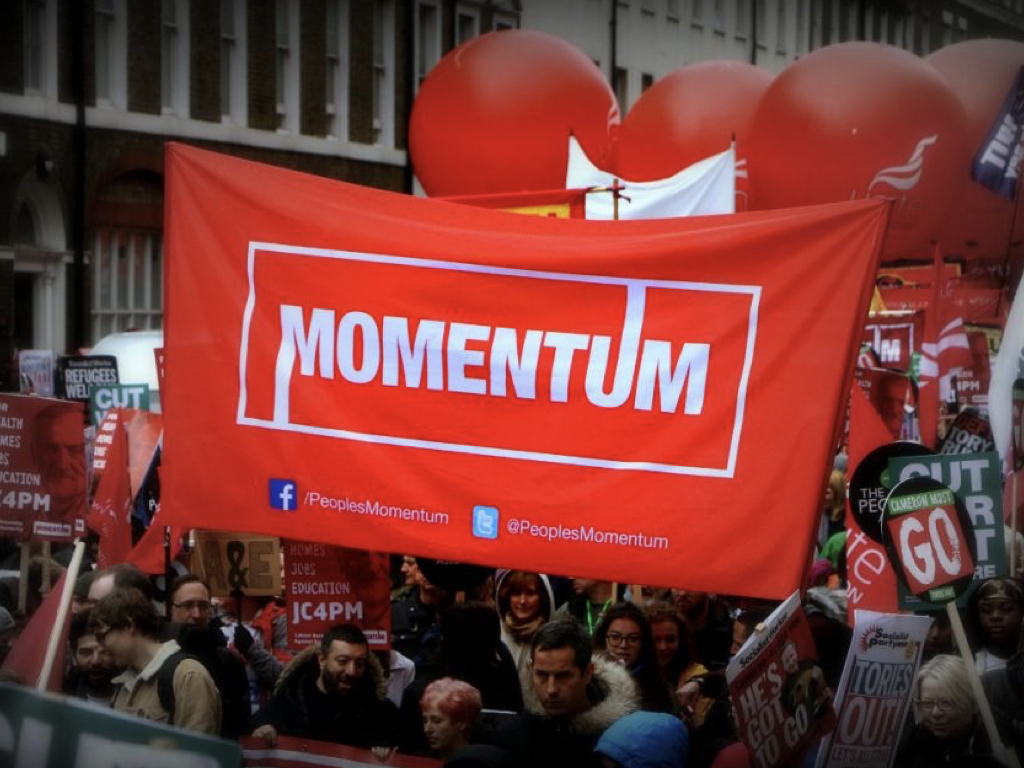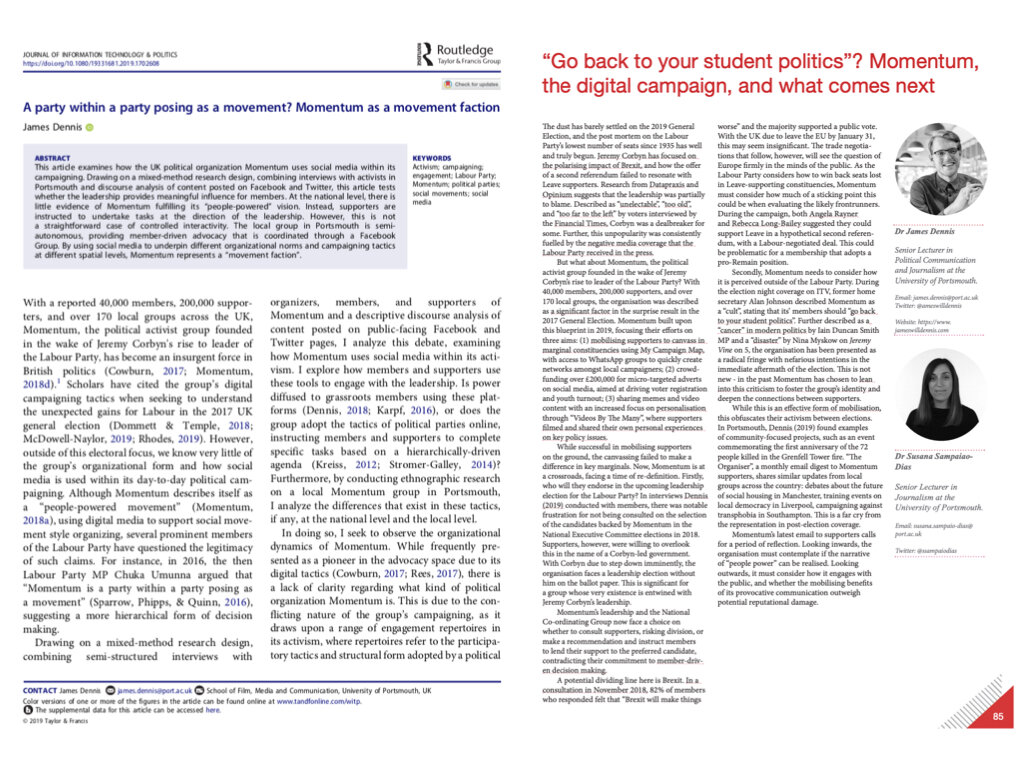With a reported 40,000 members, 200,000 supporters, and over 170 local groups across the UK, Momentum, the political activist group founded in the wake of Jeremy Corbyn’s rise to leader of the Labour Party, has become an insurgent force in British politics. Scholars have cited the group's digital campaigning tactics when seeking to understand the unexpected gains for Labour in the 2017 UK general election. However, outside of this electoral focus, we know very little of the group's organisational form and how social media is used within its day-to-day political campaigning. Although Momentum describes itself as a “people-powered movement”, using digital media to support social movement style organising, several prominent members of the Labour Party have questioned the legitimacy of such claims. For instance, in 2016, the then Labour Party MP Chuka Umunna argued that “Momentum is a party within a party posing as a movement”, suggesting a more hierarchical form of decision making.
Drawing on a mixed-method research design, combining semi-structured interviews with organisers, members, and supporters of Momentum and a descriptive discourse analysis of content posted on public-facing Facebook and Twitter pages, I analyse this debate, examining how Momentum uses social media within its activism. I explore how members and supporters use these tools to engage with the leadership. Is power diffused to grassroots members using these platforms, or does the group adopt the tactics of political parties online, instructing members and supporters to complete specific tasks based on a hierarchically-driven agenda? Furthermore, by conducting ethnographic research on a local Momentum group in Portsmouth, I analyse the differences that exist in these tactics, if any, at the national level and the local level. In doing so, I seek to observe the organisational dynamics of Momentum.
I propose the concept of the “movement faction” to capture how Momentum can contest national Labour party elections in a formal, controlled way while providing its members with non-hierarchical forms of participation and organisation at the local level.
Publications
Dennis, J. (2019). A Party Within a Party Posing as a Movement? Momentum as a Movement Faction. Journal of Information Technology & Politics. DOI: 10.1080/19331681.2019.1702608.
Abstract
This article examines how the UK political organization Momentum uses social media within its campaigning. Drawing on a mixed-method research design, combining interviews with activists in Portsmouth and discourse analysis of content posted on Facebook and Twitter, this article tests whether the leadership provides meaningful influence for members. At the national level, there is little evidence of Momentum fulfilling its “people-powered” vision. Instead, supporters are instructed to undertake tasks at the direction of the leadership. However, this is not a straightforward case of controlled interactivity. The local group in Portsmouth is semi-autonomous, providing member-driven advocacy that is coordinated through a Facebook Group. By using social media to underpin different organizational norms and campaigning tactics at different spatial levels, Momentum represents a “movement faction”.
Download here.
Dennis, J. and Sampaio-Dias, S. (2019). “Go Back to your Student Politics”? Momentum, the Digital Campaign, and What Comes Next. In Thorsen, E. Jackson, D. Lilleker, D. and Weidhase, N. (Eds.), UK Election Analysis 2019: Media, Voters and the Campaign (pp. 85). Bournemouth: Centre for Comparative Politics and Media Research, Bournemouth University.
Download here.
Selected talks
Dennis, J. (2020). Understanding Momentum: The Benefits and Limitations of the Movement Faction. Paper to be presented at the Political Studies Association Annual Conference, Edinburgh, April 6-8.
Dennis, J. (2020). A Party Within a Party Posing as a Movement? Momentum as a Movement Faction. Paper to presented at the MeCCSA Annual Conference, Brighton, January 8-10.
Dennis, J. (2019). A Party Within a Party Posing as a Movement? Social Media and Organisational Hybridity in Momentum. Paper presented at the Political Studies Association Annual Conference, Nottingham, April 15-17.
Dennis, J. (2018). A New Politics? Digital Media and Political Participation in Momentum. Understanding and Examining the Digital Advocacy Pioneers Workshop, University of Portsmouth, September 6-7.


